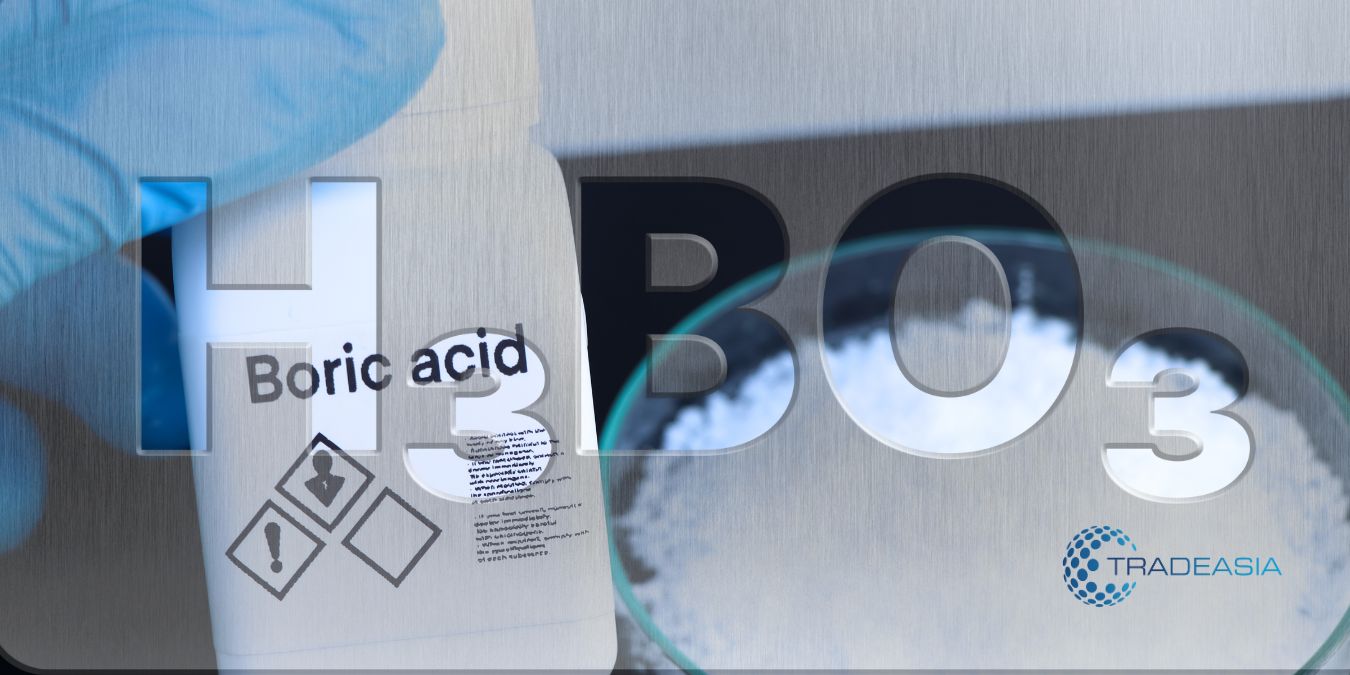Boron
How to Use Boric Acid Powder for Pest Control
Feb 19, 2024
Boron
Feb 19, 2024
Boric acid is a minerals’ by-product that consists of borates, the element Boron. Boric acid has several uses, including antibacterial, preservative, and fireproofing wood. It is utilized in the production of artificial jewels, tanning, printing, dyeing, painting, and photography as well as glass, ceramics, enamels, glazes, cosmetics, cements, porcelain, leather, carpets, hats, and soaps.
Boric acid powder also functions as an infectious agent in the stomach of insects. Its powder is abrasive to their exoskeletons and has an effect on the nervous system. Additionally, boric acid dehydrates plants by acting as a herbicide.
Boric acid has been produced and customized into a wide range of various formulations due to its versatility. Among these formulations are;
In this article, we will explain more about how to use boric acid powder for pest control.
Scientists have found that the way that boric acid acts on insects and people is different. However, this does not imply that it poses no risk to humans. Just that less boric acid is needed to have the same effect on insects.

Boric acid consumption in humans should not be more than 0.16 mg per day on average. Higher dosages have the potential to cause deadly illnesses and side effects.
The capacity of boric acid to kill insects without the use of extremely harmful chemicals is its method of action and what makes it so effective as a pest control measure.
The product works as a stomach poison when applied to insects that come into contact with or eat boric acid. Many insects’ outer shells can be broken through by the highly abrasive powder.
An insect’s body reacts differently to boric acid consumption. It ruins an insect’s metabolism and poisons its stomach. Boric acid powder is also highly abrasive. It has an impact on the insect’s exoskeleton, weakening its hard skin or shell and causing external dehydration.
For example, if roaches were to cross over into Boric Acid, the delayed, lethal poison would operate as if they were glass shards, tearing them apart. Roaches are able to return to their nests, where they eventually die due to the slow killing effect.
After a roach has consumed boric acid, other cockroaches will eat its dead carcass, which is going to kill them as well. The cycle keeps going until either the queen herself consumes too much boric acid, killing her, or the colony is destroyed. So, the effect of boric acid as an insecticide spreads out and creates a butterfly effect to every insect it interacts with.
Depending on the severity of the pest, apply boric acid twice or three times a month to be more effective. If you notice a slow decrease in the number of pests around your area, keep applying boric acid as a preventative measure. Thus, the activity of pests can be under your control.
When boric acid is used improperly, it can harm the environment and cause health problems. Boric acid powder can become airborne when applied excessively or carelessly, raising the possibility of inhalation. In particular, sensitive people may experience respiratory distress, allergic reactions, or irritation of the respiratory system because of its airborne. Furthermore, accidental ingestion becomes a concern if food or water sources are contaminated by boric acid dust, especially for kids and animals.
Individuals who unintentionally consumed boric acid stated that they had experienced diarrhea, vomiting fits, and stomachaches. Also, those who unintentionally inhaled dust or powdered boric acid also reported having dry throats, mouths, and noses. Additionally, it may irritate the skin and the eyes may be corroded.
Thus, never forget to always wear masks and other protective clothing to prevent coming into contact with the raw material for people who have allergies to certain substances. Boric acid can induce nervous system dysfunctions in infants, resulting in comatose states, abnormal posture, convulsions, and confusion or disorientation.
To prevent irritation of the eyes and skin, people need to be careful when handling boric acid. The following safety measures should be followed when applying boric acid as a pesticide:
Additionally, it is a good idea to always have a bottle of emergency eyewash close by in case the boric acid gets into the eyes. Moreover, when using boric acid, make sure the area is well-ventilated. It is safe to open a window or turn on a fan when using it indoors. Make sure to wash the clothes and skin right away, if accidentally, the boric acid spills and hits the clothes to minimize the chance of irritation. If there is any dust on the ground after using the boric acid, vacuum the area around it to prevent breathing in any dust.
Boric acid is a mineral’s by-product that consists of borates, the element Boron. Boric acid also functions as an infectious agent in the stomach of insects. The capacity of boric acid to kill insects without the use of extremely harmful chemicals is its method of action and what makes it so effective as a pest control measure.
However, when boric acid is used improperly, it can harm the environment and cause health problems. Boric acid powder can become airborne when applied carelessly, raising the possibility of inhalation, which leads to several diseases, such as respiratory distress, allergic reactions, or irritation of the respiratory system.
It can also cause diarrhea, vomiting fits, and stomachaches for people who accidentally consume boric acid. Besides, it may also irritate the skin and the eyes may be corroded. Thus, to prevent irritation of the eyes and skin, people need to be careful when handling boric acid and follow several proper precautions.
If you have any questions about Boric acid or more, please contact us
We're committed to your privacy. Tradeasia uses the information you provide to us to contact you about our relevant content, products, and services. For more information, check out our privacy policy.
Leave a Comment